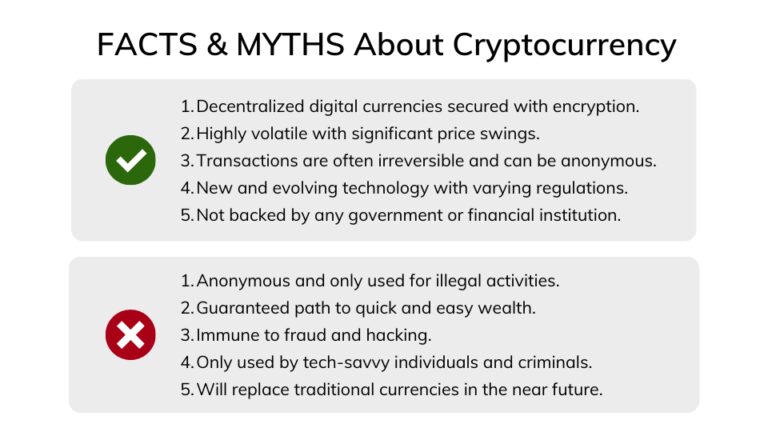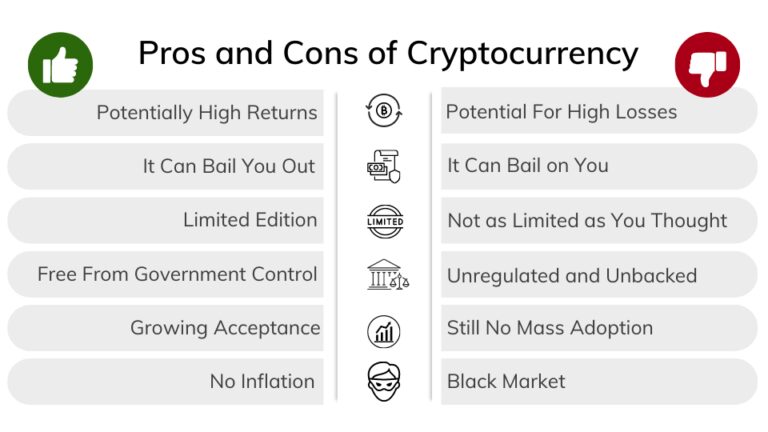In an era of rising inflation, safeguarding your wealth is crucial. Unearth the potential of cryptocurrency as an effective shield against inflation. Dive into the world of digital currencies and arm yourself with strategic knowledge to hedge successfully. Let’s explore how you can use cryptocurrency to protect your wealth in 2024.

Inflation is an economic term that refers to the general increase in prices and fall in the purchasing power of money. It’s a normal part of most healthy economies, but when it accelerates, it can hamper economic stability. This is because too much inflation can erode purchasing power and create uncertainty in the economy. This uncertainty can then lead to decreased business and consumer spending, which can ultimately slow economic growth.
Cryptocurrency is a type of digital or virtual currency that uses cryptography for security. The first and most well-known cryptocurrency, Bitcoin, was introduced in 2009 by an anonymous entity known as Satoshi Nakamoto. Cryptocurrencies work by using decentralized technology to allow users to make secure payments and store money without needing to use their name or go through a bank. They run on a distributed public ledger called a blockchain, which records all transactions updated and held by currency holders.
One of the key features of cryptocurrencies like Bitcoin is their fixed supply. Unlike fiat currencies, which can be issued in unlimited quantities by central banks, the total number of Bitcoins that will ever be created is capped at 21 million. This makes them inherently resistant to inflation. In economies where inflation is high, cryptocurrencies could potentially serve as a store of value, much like gold. However, it’s important to note that their value can be volatile, and they’re not immune to other forms of risk.
For those interested in how the dynamics of cryptocurrency and inflation play out in specific sectors such as online gambling, the article titled Exploring Top Cryptocurrency Casinos offers insightful content. Not only does it give you an overview of how cryptocurrencies are used in online casinos, but it also discusses the potential implications of inflation on cryptocurrency gambling.
The world of investment is fraught with uncertainties, and professionals have always sought ways to protect their assets from fluctuations in the market. This is especially true with the ever-increasing fear of inflation. One key concept in the financial world that helps achieve this is hedging. A hedge is an investment made to reduce the risk of adverse price movements in an asset. It functions as an insurance policy, offering some level of protection against potential losses.
Hedging involves making an investment to offset potential losses that may be incurred by another investment. Investors and institutions do this by taking an opposite position in a related security. For example, a futures contract (an agreement to buy or sell a particular commodity or financial instrument at a predetermined price at a specified time in the future) can be used as a hedge against price fluctuations. The purpose of hedging is not to make money but rather to reduce the amount of loss.
As digital assets, cryptocurrencies have the potential to serve as a hedge against inflation for a variety of reasons. They are not directly linked to a specific country’s economy, making them less susceptible to the effects of inflation. Cryptocurrencies such as Bitcoin have a limited supply, which could theoretically protect against the devaluation that often occurs during periods of high inflation.
Furthermore, as cryptocurrencies are decentralized and not controlled by central banks, they cannot be easily manipulated or inflated. The use of blockchain technology ensures transparency, security, and privacy, which add to its attractiveness as a hedging option. Unlike traditional currencies that can be printed in unlimited quantities by central banks, leading to devaluation and hyperinflation, the number of Bitcoins that can ever exist is capped at 21 million units.
In countries experiencing high inflation rates or economic instability, many have turned to cryptocurrencies for protection. For instance, in Venezuela, amidst a hyperinflationary environment, the use of cryptocurrencies like Bitcoin has escalated. Another example is Argentina, where individuals have turned to cryptocurrencies as a way to protect their savings from the country’s high inflation rate.
Furthermore, amidst the COVID-19 pandemic and subsequent economic downturn, many investors have turned to Bitcoin as a ‘digital gold’ to hedge against inflation. This shows a growing recognition of cryptocurrencies as a potential safeguard against economic uncertainty caused by inflation.
To understand more about how different cryptocurrencies behave under diverse circumstances and how to make informed choices, especially when it comes to online casinos and gambling, check out the Ethereum vs Tether: Making Casino Choices guide.

When selecting a cryptocurrency for hedging against inflation, several factors come into play. Your choice of coin should ideally be informed by careful analysis of past and present performances, as well as projected future trends. Among the myriad of digital currencies available today, a few stand out for their potential as inflation hedges.
The world of cryptocurrencies is vast and continually expanding, with thoafricands of different options to potentially invest in. However, a few key players have consistently proven their worth:
Analyzing the performance of cryptocurrencies during periods of inflation is critical in determining their effectiveness as a hedge. Bitcoin, for example, has demonstrated resilience during inflationary periods. Investors flocked to Bitcoin during the inflation that followed the global financial crisis of 2008, and again in 2020 during the economic impact of the COVID-19 pandemic.
Ethereum has also shown promise as an inflation hedge, particularly due to its integral role in the decentralized finance (DeFi) sector. As more investors and institutions recognize the potential of Ethereum’s smart contract technology, its value is likely to increase, even during times of inflation.
The performances of Litecoin and Bitcoin Cash during periods of inflation have been somewhat less consistent. While they’ve shown potential as hedges, investors should be aware that these cryptocurrencies’ value can fluctuate significantly and may not always align with inflation trends.
By carefully selecting your cryptocurrency investments, you can maximize your chances of hedging effectively against inflation. But remember, while cryptocurrencies can provide a potentially profitable hedge strategy, caution is advised. Always do your due diligence before investing and consider seeking advice from a financial advisor. For more insights on making the most of cryptocurrency investments, don’t miss our guide on Maximizing Wins in Crypto Roulette.

When we talk about cryptocurrency being used as a hedge against inflation, platforms that facilitate these cryptocurrencies play a vital role. In this section, we will be looking at some selected platforms and their importance in aiding hedging with cryptocurrency.
The cryptocurrency world has seen an explosion of platforms that facilitate the buying, selling, and trading of cryptocurencies. These vary greatly in terms of their features, user experience, and security measures. Here we put the spotlight on a few selected ones: Bitsler, MyStake, Sportsbet.io, 20Bet, Rolletto, Stake, 22bet, Megapari, Fortunejack, Thunderpick, Trust Dice, Roobet, BC GAME, Vave, Freshbet, Velobet, 0x.bet. It’s important to note that these platforms were chosen based on their reputation, safety measures, user experience, and the range of cryptocurrencies they support.
Cryptocurrency platforms are the engine that powers the use of cryptocurrency. Whether it’s buying your first Bitcoin, trading Ether for Tether, or using your crypto assets to participate in a game, these platforms are where it all happens.
From an inflation hedging point of view, these platforms play a crucial role. They offer a marketplace where users can trade their fiat currencies for cryptocurrencies, hence providing an avenue for people to invest in cryptocurrencies as a way of protecting their wealth against inflation. Besides allowing the purchase and sale of cryptocurrencies, they also provide storage and security for these digital assets. Users can safely keep their crypto assets in these platforms’ wallets where they are protected from unauthorized access with high-level security protocols.
Moreover, these platforms often offer charts, graphs, and other analytics tools to help users track the performance of various cryptocurrencies. This can help users make informed decisions about which cryptocurrencies to buy and when to buy them – vital factors when using cryptocurrencies as a hedge against inflation.
Additionally, it’s important to note how these platforms have evolved to integrate other economic activities. For instance, many of these platforms now allow users to participate in online games like crypto poker. This means users can not only protect their wealth from inflation but also potentially increase it through online gaming. These platforms, therefore, play a multi-faceted role in facilitating cryptocurrency as a hedge against inflation.

While using cryptocurrency as a hedge against inflation offers promising potentials, it’s crucial to understand that it comes with certain risks. Most notable are its volatility, regulatory uncertainties, and cybersecurity issues. It’s essential that investors are well aware of these risks before delving into the cryptomarket.
One major drawback of cryptocurrencies is their notorious volatility. Unlike traditional currencies, which are usually stable, cryptocurrencies can experience dramatic price swings within a short period. This unpredictability can result in significant financial losses. While some investors may view the volatility as an opportunity for substantial returns, it equally presents a substantial risk for significant losses.
Regulatory issues pose another major challenge. The lack of a centralized authority and standard regulations make cryptocurrencies a bit of a wild west. Some countries have outright banned their use, while others are still grappling with how to regulate them. The ever-changing regulatory landscape can pose risks for investors, as future laws could dramatically influence cryptocurrency values.
Cybersecurity is another significant risk involved in cryptocurrency trading. Given that cryptocurrencies are digital assets stored on the internet, they’re susceptible to cyber-attacks, fraud, and theft. Even though cryptographic techniques secure cryptocurrencies, hackers have been successful in stealing these digital currencies by attacking the platforms or digital wallets where they’re stored.
Despite these risks, there are ways to mitigate them and safely invest in cryptocurrencies. These include adequate market research, diversification, and using secure platforms.
Thorough market research is essential to understand the market trends and indicators that drive cryptocurrency prices. This will enable investors to make informed decisions and potentially predict periods of high volatility or market downturns.
As with any investment, diversification is key. Spreading investments across different cryptocurrencies can help to mitigate the risk associated with volatility. In case one cryptocurrency performs poorly, the loss can be compensated by the performance of others.
The choice of trading platform is also vital. To minimize cybersecurity risks, investors should opt for platforms with robust security measures and a good track record. It’s also advisable to store cryptocurrencies in secure wallets, preferably offline ‘cold’ wallets.
Understanding these risks and challenges associated with using cryptocurrency as a hedge against inflation is the first step to safely investing in the cryptomarket. For more in-depth insights, check out this guide on Understanding Blockchain Casinos, to get a sense of how blockchain technology plays a crucial role in securing cryptocurrencies.

